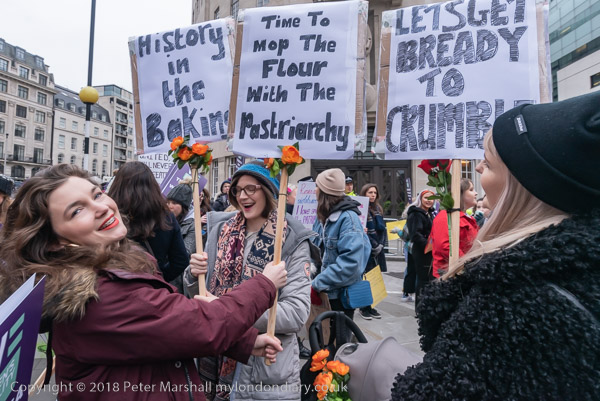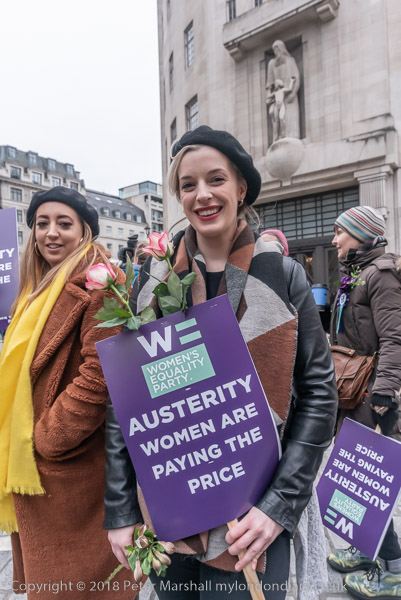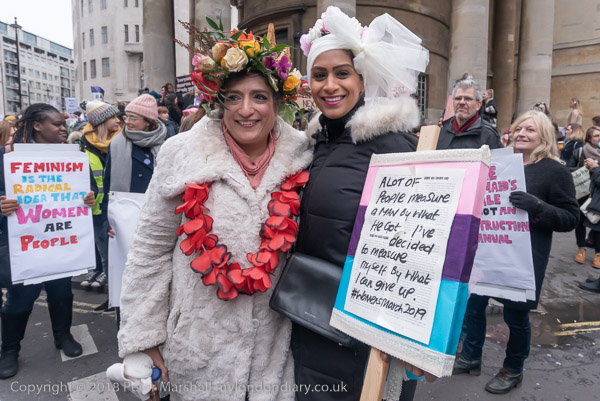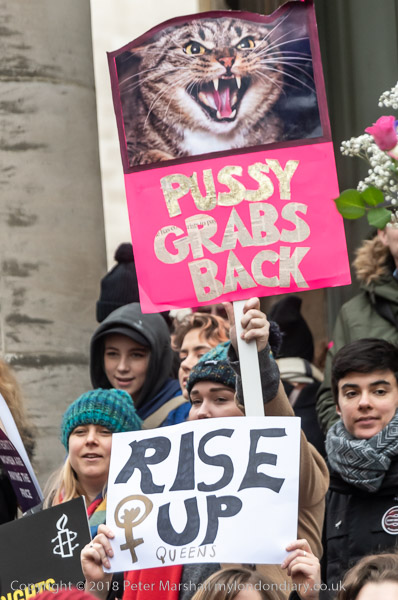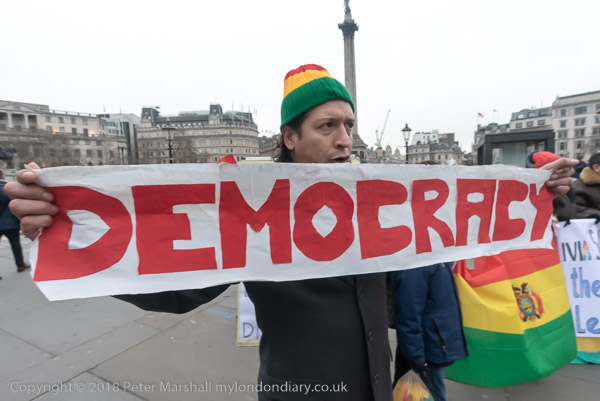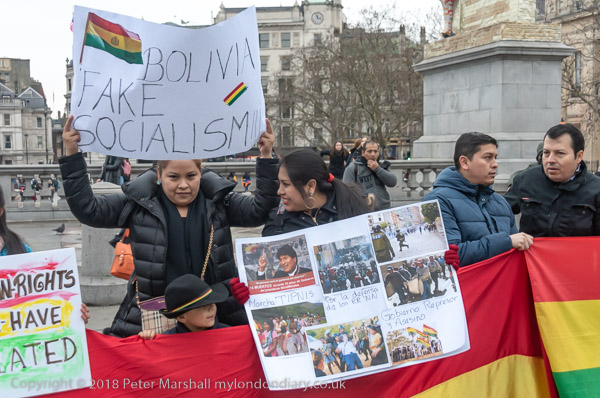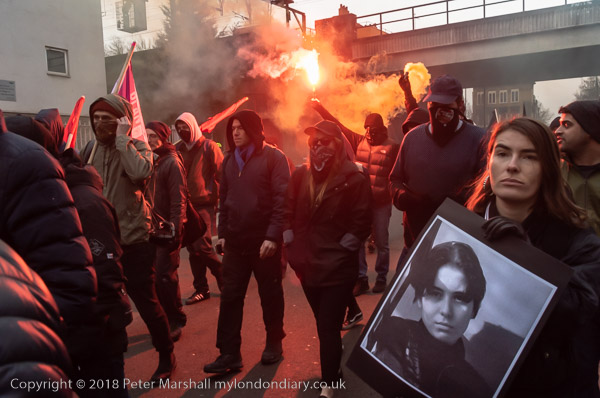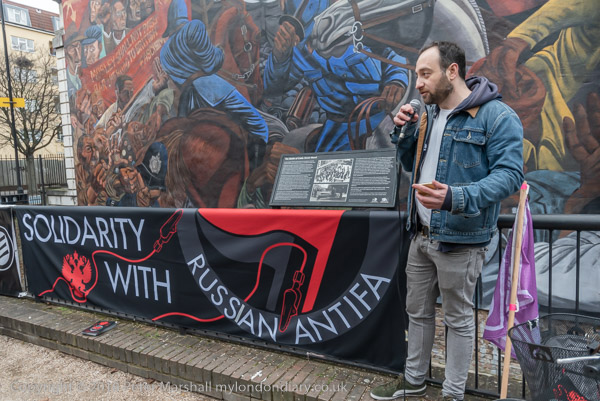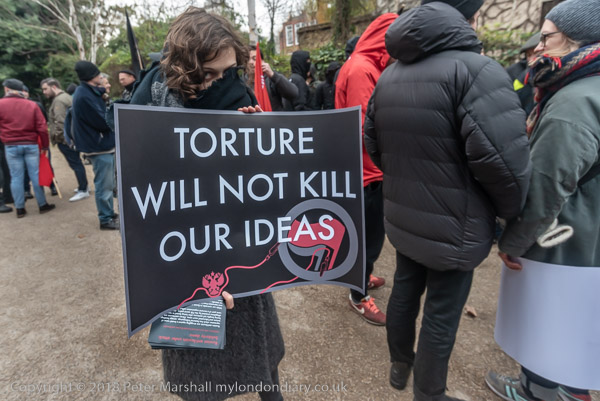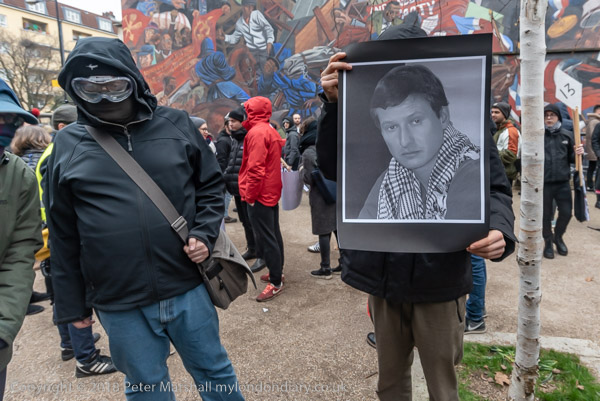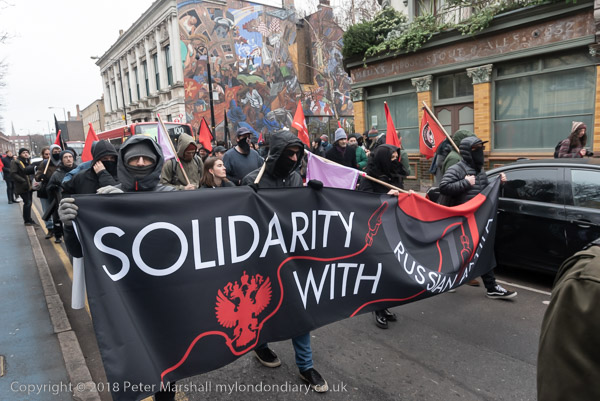It’s easy to forget in our current government racist climate towards asylum seekers that Britain has a long history of giving sanctuary to political activists from around the world who have been forced to leave their countries and there are a number of statures, memorials and plaques around the city that remind us of this.
Of course our historical record is blemished; although we supported those striving for freedom from the rule of other European countries, attempts in our own Empire to gain independence were met with often illegal, ruthless and horrific violence as well as deliberate famines starving many of the general population – as in India, Ireland, Kenya and elsewhere.
Despite increasingly draconian laws enacted in recent years Britain remains a relatively free country. Protests are coming under increasing restrictions, but we can still protest although it is now rather more likely we may end up in prison for doing so in any active way – and protesters have even been jailed recently for contempt of court for attempting to defend their actions.
Over the years I’ve covered many protests by communities from other countries living in the UK, often involving people who came here as asylum seekers. Most are protesting in solidarity with protesters and victims in their home countries and some because those at home are unable to protest.
The three events I covered on Saturday 20th April 2013 were taking place for different reasons but all involved people whose origins are in other countries and were protesting about events in those countries, current or historical.
Armenians Remember the Genocide
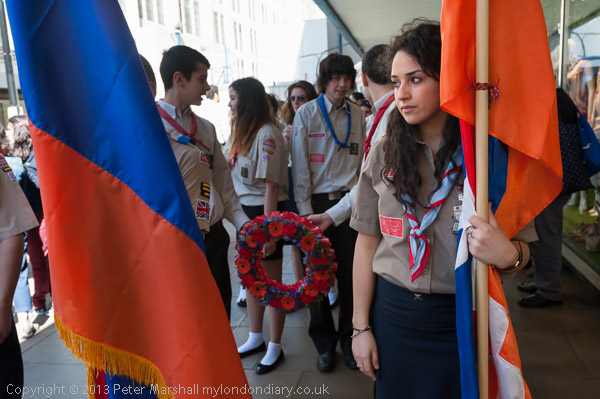
Armenians march through London every year in memory of the Armenian Genocide by Turkey. Beginning in 2015, Turkey arrested around a thousand members of the Armenian community and murdered them, followed by the killing of around 300,000 Armenian conscripts in the Turkish Arm and then “mass killings, deportations and death marches of women, children and elderly men into the Syrian Desert. During those marches, many of the weak or exhausted were killed or died. Women were raped. The deportees were deprived of food and water. Starvation and dehydration became commonplace.”
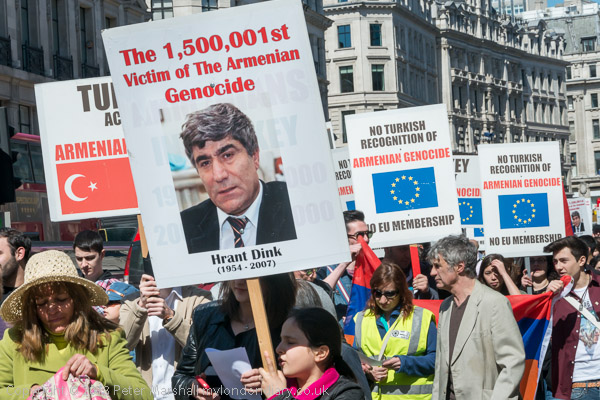
Most of the deaths came in 1915, but massacres and deportations continued on a smaller scale until 1923, with around 1 – 1.5 million people – roughly 70% of the Armenian population in Turkey – being killed.
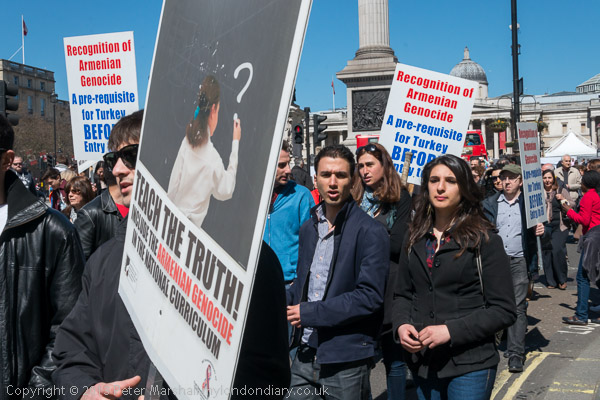
Armenia has an ancient cultural heritage, with the first Armenian state dating back to 860BC, and at times its territory has included large parts of its surrounding countries. It was invaded by many other countries and in the 16th century was divided between the Turkish Ottoman Empire and Persia (Iran.) Russia took over the Iranian area following a war with Persian in the early 19th century.
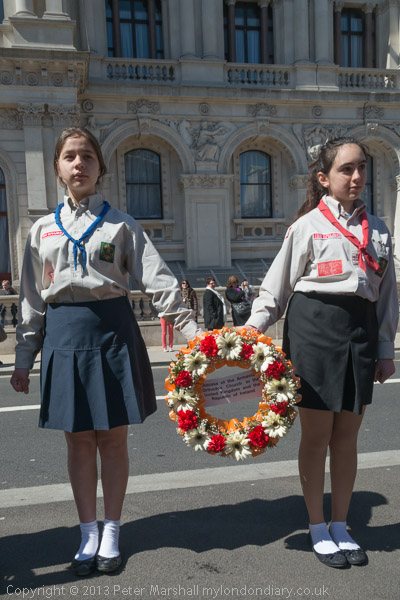
The Armenian Genocide took place during the collapse of the Ottoman Empire. After the Turkish revolution of 1908 there had been a massacre of around 20-30,000 Armenians at Adana in 2009. But it was during the First World War when Russia and the Ottoman Empire were fighting each other that the genocide took place, probably as a reaction to Armenian volunteers fighting on the Russian side.
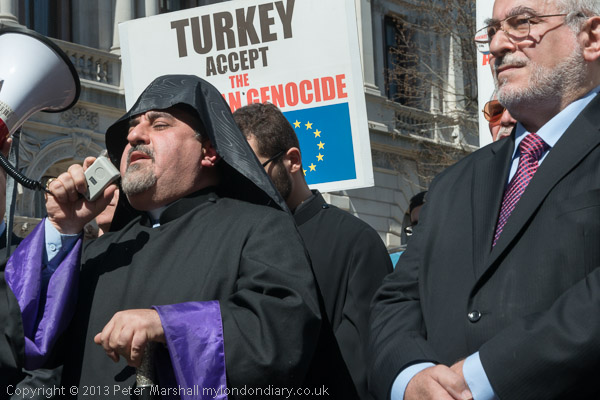
Turkey still denies that the genocide took place, despite the incontrovertible evidence, and say that the deaths were the result of a civil war although the Armenians had no weapons and no military organisation.
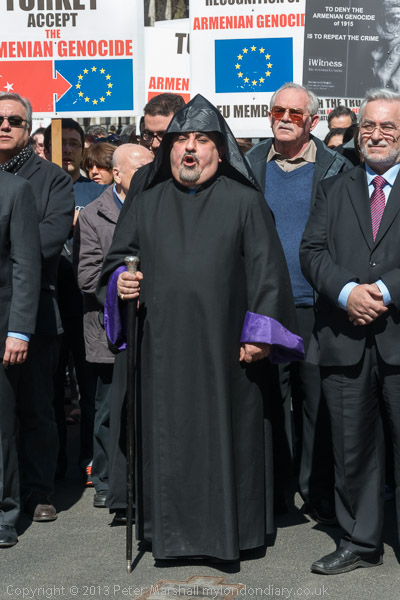
Although the UN Commission on Human Rights has described it as genocide and many countries around the world have officially recognised it as such, including the United States, France, and Germany and the Scottish, Welsh and Northern Ireland parliaments, the UK government has instead come up with trivial excuses for refusing to do, including the fact that the term genocide was only defined in 1948. When the UN did so then, Raphael Lemkin who had coined the term genocide, described it as “The sort of thing Hitler did to the Jews and the Turks did to the Armenians.”
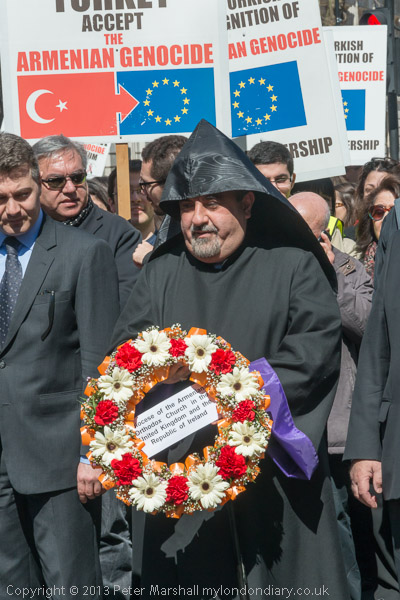
My London Diary describes the march through London to the Cenotaph, where there were speeches and wreaths were laid. I left the march as it moved off to a service in St Margaret’s Church in Parliament Square.
Armenians Remember the Genocide.
Copts Say End Egyptian Persecution – Old Palace Yard, Westminster
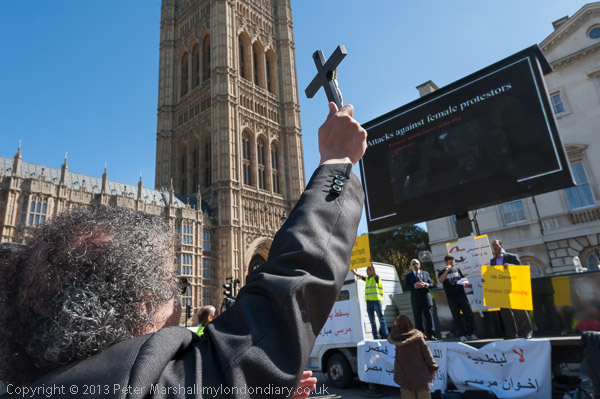
Around the corner from the church I joined UK Copts who were protesting Against the new Muslim Brotherhood led fascist regime in Egypt, which is attacking freedom, muzzling the press, undermining the legal system and encouraging attacks on religious minorities.
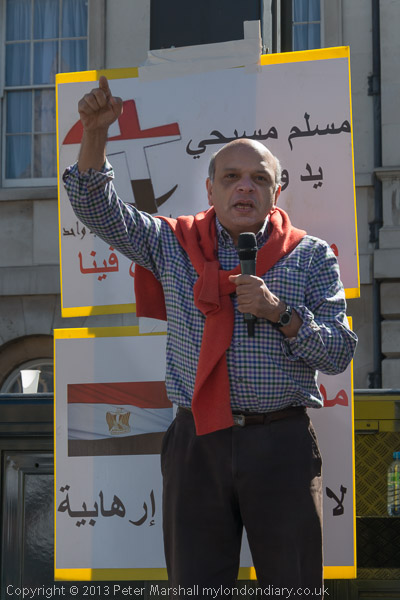
The protest followed an attack on April 8th on people leaving a mass funeral in St Mark’s Cathedral, Cairo, for 5 Copts who had been killed in violent clashes in the northern suburbs of the city. As the hundreds of worshippers tried to leave they were attacked with stones and Molotov cocktails thrown from nearby buildings and had to retreat back into the cathedral.
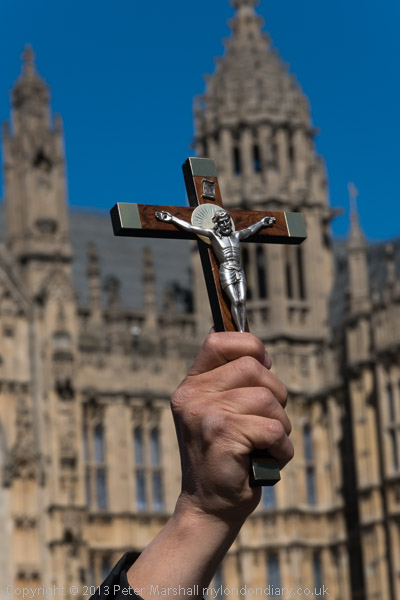
Clashes continued outside the cathedral, Egyptian security forces fired shots into the building and police fired tear gas. One Copt was killed and 84 people including 11 police were injured.

After the attack President Morsi spoke with Pope Tawadros II and issued a statement that he had given orders that the police guard the cathedral and that the state would protect the lives of both Christians and Muslims. But this was just one of many attacks on Copts in Egypt and they feel the authorities are encouraging violence against them.
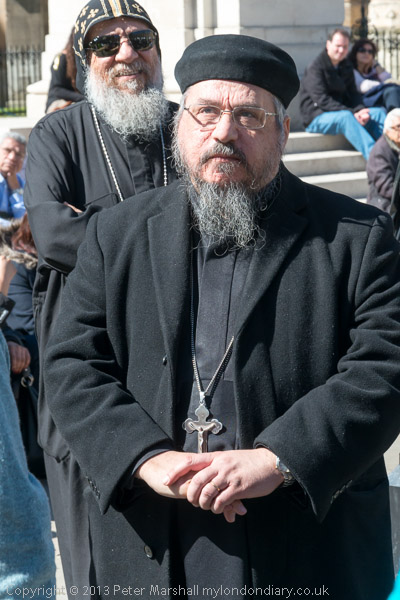
The Copts see this as part of a growing Islamicisation which is also undermining Egypt’s judicial system, and as a deliberate attack on all opposition, including the liberal and left political opposition as well as all minority religious groups. The stress their protest was not against Muslims but to persuade the British government to stop supporting the current fascist regime in Egypt and to put pressure on the Egyptian government to uphold human and civil rights.
Copts Say End Egyptian Persecution
Stand Off at Venezuela Embassy – South Kensington
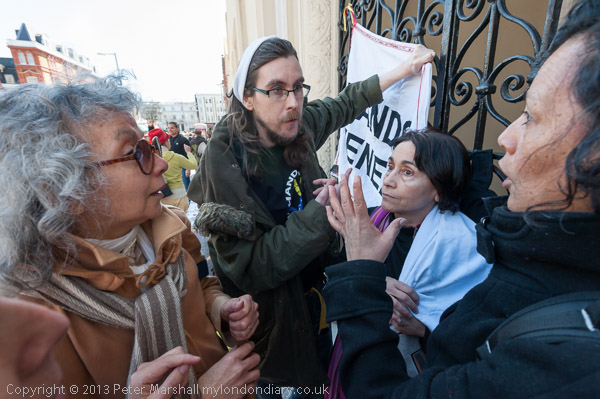
Following the death of President Hugo Chávez on 5 March 2013, elections were held in Venezuela on 14 April 2013 which resulted in a close victory with a majoirty of around 223,600 votes for Nicolás Maduro, the successor chosen by Chávez to stand for the United Socialist Party.
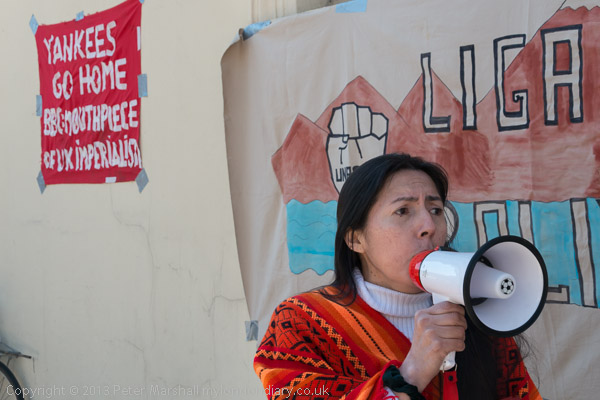
Opposition candidate Henrique Capriles refused to accept the result, demanding audits – which confirmed he had lost. Venezuela has a highly sophisticated and automated voting system that left no room for reasonable doubt that he had lost.
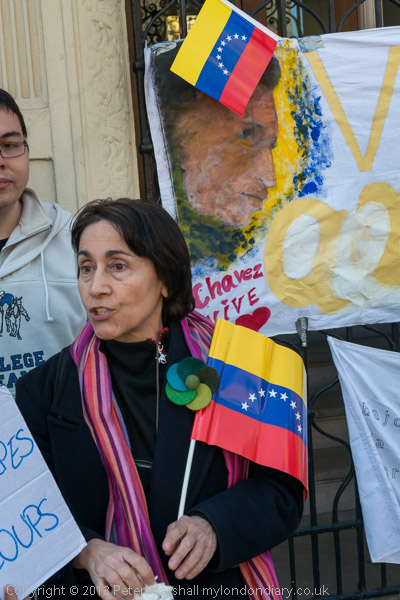
Middle-class Venezuelans who oppose Maduro and come along to protest at the embassy, and a wider group of people, mainly South Americans but not all from Venezuela, had come to defend it.
As I commented:
Maduro’s support comes largely from the workers in Venezuela, for whom the Chavez ‘revolution’ has seen real gains, including much improved healthcare. Many of those who were there to support him today had come to Britain as refugees – largely as a result of US-backed military coups in their countries. Their support for Chavez, and after him Maduro is hardly surprising.
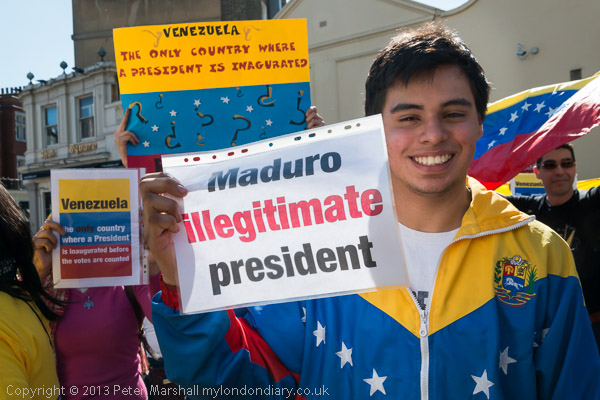
More about the protest on My London Diary: Stand Off at Venezuelan Embassy
